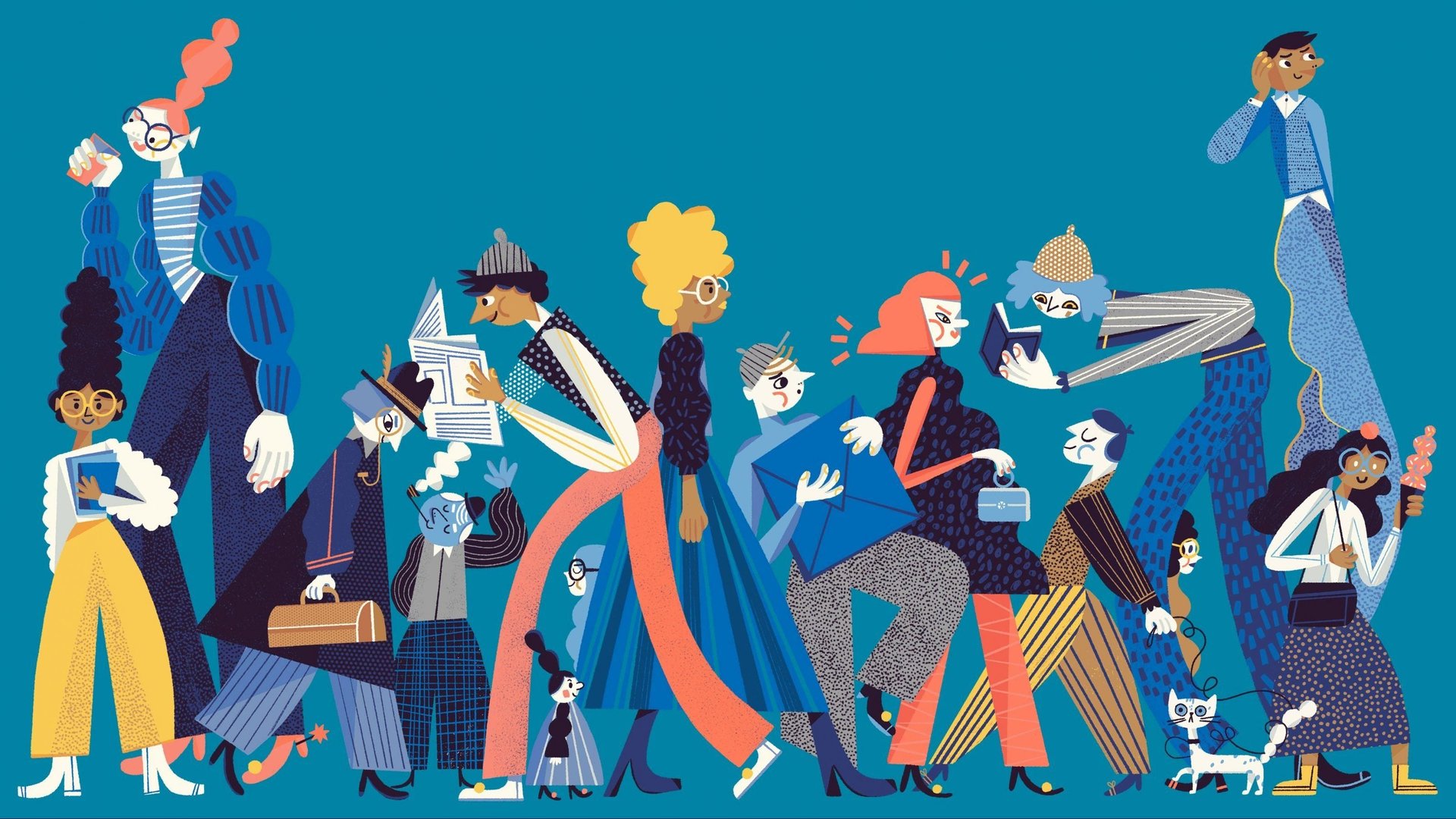The 10 best Quartz at Work stories about identity and inclusion
Quartz at Work, an edition from Quartz about navigating the modern workplace, launched at almost exactly the same time as the #MeToo movement. As far as we’re concerned, it was excellent timing.


Quartz at Work, an edition from Quartz about navigating the modern workplace, launched at almost exactly the same time as the #MeToo movement. As far as we’re concerned, it was excellent timing.
The global awakening that began last October, and continues still, demands that workplaces do more, not only to protect the safety and well-being of employees but to dismantle the underpinnings of a system that has allowed so much toxic behavior to flourish.
This reinforces the ideas predicating our obsession with identity and inclusion: that the progress being made toward fixing inequities in the workplace has been frustratingly slow, that examples from places that are doing it right are worth sharing, and that the HR-office definition of diversity probably doesn’t reflect the whole story of what happens when people from different genders, races, religions, sexual orientations, countries, political persuasions, or economic backgrounds come together to work.
To mark one year since the launch of Quartz at Work, we’ve compiled 10 of our best, most illuminating stories on identity and inclusion. We hope our coverage inspires more accountability and continued improvement in how we hire, treat, promote, and include people at work.
There are 624 public companies with no women on their boards. Here’s the list
When we built our list in 2017, using Equilar data from Sept. 30 of that year, more than 20% of the Russell 3000 had all-male boards. By the end of the first quarter of 2018, that percentage had fallen to 19.5%. Look for a bigger improvement in 2019, when a new law requires that all public companies based in California have at least one woman on their board. (More than 100 of the companies on our original list—which you can search by company name, stock symbol, or headquarters city—were based in California.)
Your company’s Slack is probably sexist
There’s nothing gendered about electronic communication platforms—until people start using them. Quartz at Work reporter Leah Fessler shows how the different ways men and women communicate in person and on paper also apply to chat apps like Slack, where microaggressions can run rampant, often without anyone even noticing.
If you’re confused by the concept of “privilege,” this metaphor will help
Venture capitalist Arlan Hamilton puts it so succinctly.
All career advice for women is a form of gaslighting
Quartz writer Ephrat Livni struck a chord with this essay, which argues that it’s society that needs fixing, not the ways in which women ask for money; modulate their voices in meetings; or choose their wardrobes for the office.
The men’s guide to understanding emotional labor
Quartz at Work contributing editor Khe Hy had heard about emotional labor before, but he never fully understood where the concept came from or why it seemed to encompass so many things. In a #MeToo world, he was no longer comfortable not knowing about it—and after delving deep into the history and societal implications of emotional labor, he wanted to make sure other men knew about it, too.
Nearly a third of US white-collar workers have a disability, a new study finds
And many of those disabilities, as Quartz at Work’s Lila MacLellan reports, are invisible to peers and managers.
Finding my voice as an Asian-American leader meant reconciling two different models of leadership
Deb Liu, the daughter of Chinese immigrants, learned early on “to speak less and do more.” It served her well enough in school, but less so in the business world, where she was frequently praised for her analytical abilities but criticized for her presence with clients. Liu, now a vice president at Facebook, offers an instructive essay on how she finally learned to speak up.
If co-working is the future, then it shouldn’t look like a frat house
Amy Nelson didn’t want to create a women’s co-working space per se. What she wanted was a space where women would feel as comfortable as everyone else, which isn’t always the case at offices run by WeWork, Industrious, or Rocketspace—where the vibe is often a reflection of the major co-working companies’ all-male founding teams and all-male boards. That’s why Nelson created The Riveter.
For the love of mothers, stop using the word “mompreneur”
The terms being used to call attention to women in business aren’t just patronizing. Quartz reporter Annalisa Merelli argues they’re also counterproductive to the cause of women’s equality.
Gen X was as entitled and unmanageable as millennials are, based on commentary of the ’90s
Generational identities run deep in the workplace, where four cohorts of adults are currently colliding. Quartz at Work deputy editor and reluctant millennial Sarah Kessler put down her avocado toast and checked to see if other generations had been as widely derided as her own for being lazy and entitled. Turns out she didn’t have to go back far.
The screenwriter of the 1980 hit film “9 to 5” says we’re finally facing reality
Patricia Resnick was just 26 when she wrote the screenplay for 9 to 5, a hit comedy about a trio of office workers who endure a sexist pig of a boss. Nearly 40 years later, the film’s themes are still depressingly relevant. In this fascinating interview, Resnick talks to Quartz’s Oliver Staley about how the movie took shape, how she was sidelined by its (male) director, and what has and hasn’t changed for women in the workplace in the decades since the movie’s debut.
Thanks for reading Quartz at Work. Your feedback is always welcome. Find us on Twitter or or email us at [email protected] (subject line: Quartz at Work).